 Weird Stuff
Weird Stuff  Weird Stuff
Weird Stuff  Miscellaneous
Miscellaneous 10 LEGO Facts That Will Toy with Your Mind
 Misconceptions
Misconceptions 10 Widespread Historical Myths and the Texts That Started Them
 Crime
Crime 10 Incredible Big-Time Art Fraudsters
 Movies and TV
Movies and TV 10 Most Influential Fictional Objects in Cinema History
 Our World
Our World Top 10 Real Almost‑Cities That Never Materialized
 Technology
Technology 10 Unsettling Ways Big Brother Is (Likely) Spying on You
 Music
Music 10 Chance Encounters That Formed Legendary Bands
 Space
Space 10 Asteroids That Sneaked Closer Than Our Satellites
 Sport
Sport The 10 Least Credible Superstars in Professional Sports
 Weird Stuff
Weird Stuff 10 of History’s Greatest Pranks & Hoaxes
 Miscellaneous
Miscellaneous 10 LEGO Facts That Will Toy with Your Mind
 Misconceptions
Misconceptions 10 Widespread Historical Myths and the Texts That Started Them
Who's Behind Listverse?

Jamie Frater
Head Editor
Jamie founded Listverse due to an insatiable desire to share fascinating, obscure, and bizarre facts. He has been a guest speaker on numerous national radio and television stations and is a five time published author.
More About Us Crime
Crime 10 Incredible Big-Time Art Fraudsters
 Movies and TV
Movies and TV 10 Most Influential Fictional Objects in Cinema History
 Our World
Our World Top 10 Real Almost‑Cities That Never Materialized
 Technology
Technology 10 Unsettling Ways Big Brother Is (Likely) Spying on You
 Music
Music 10 Chance Encounters That Formed Legendary Bands
 Space
Space 10 Asteroids That Sneaked Closer Than Our Satellites
 Sport
Sport The 10 Least Credible Superstars in Professional Sports
Top 10 Alleged Autistics in History
There is perhaps no more controversial neurological disorder than autism, a mysterious ailment which affects the nerve pathways and causes various developmental disabilities. The severity of autism is highly variable – a little less than half of sufferers lack the communication skills to function successfully in society, but many, such as those with Asperger’s Syndrome (a form on the autism spectrum) have enjoyed very productive lives.
Science has yet to fully grasp the mechanism of action or the cause of autism, although theories abound from childhood inoculations to genetic mutations. A captivating symptom of this disorder in some subjects is an intense, single-minded focus, a savant “genius” in some certain area, such as that exhibited by the Dustin Hoffman character in the movie “Rain Man,” who had a extraordinary affinity for numbers. Although autism was not fully described until the 20th century, history is full of suspected cases, many of which are amongst the most celebrated and brilliant minds to have ever existed. Below are ten famous personalities alleged to have had disorders on the autism spectrum.
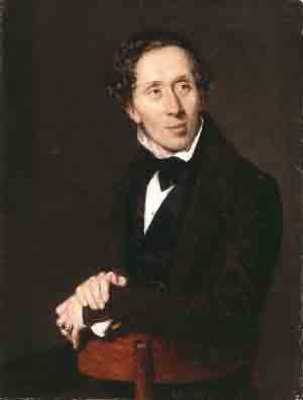
Andersen was a Danish author known for his children’s fairy tales, such as “The Ugly Duckling” and “The Little Mermaid” (which is a heart-wrenching tragedy when compared with the Disney version). As a child, he was gangly and effeminate, and prone to strange tantrums. His journals indicate a strange pattern of pining after unattainable men and women, and a privately enforced celibacy early in life. Upon close examination, his stories seem to be indicative of a deep inner turmoil, often featuring strange or misunderstood characters who are not always fortunate enough to find redemption.
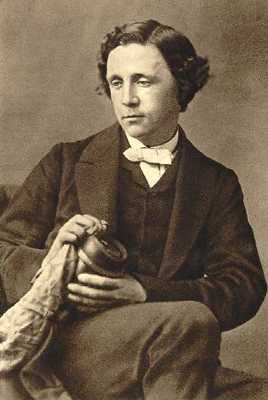
Born Charles Lutwidge Dodgson, Carroll was another children’s author who seemed to bear certain autistic trademarks. Most famous for his “Alice in Wonderland” stories, he had a stammer which likely exacerbated his lack of social skills. Like many people touched by autism, he exhibited great mathematical acumen and was a minor inventor. Although he had some adult friends, Carroll seemed to much enjoy the company of children, to the point where some historians allege that he may have been a pedophile, although it may have just been that with his poor communicative abilities he found it easier to interact with kids. He took many nude pictures of underage girls, although the connotations of such activity were not so severe at the time as they are today. Adding to the mystery, large portions of his journals were removed after his death, leading some to believe they detailed aberrant, possibly criminal behavior.
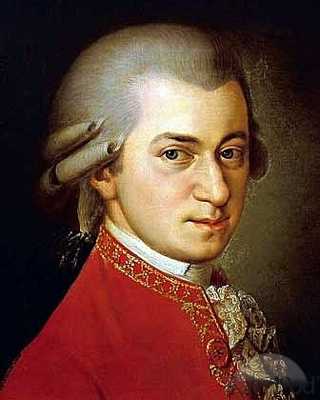
Perhaps the greatest composer the world has ever known, Mozart was an accomplished musician from the age of four or five, and by his teenage years was a renowned genius, exhibiting much of that narrow focus often found in autistic patients. A strange, impulsive little man, he favored bawdy adolescent bathroom humor and even wrote songs with scatological lyrics. Although some historians purport that he may have been autistic, it seems unlikely – Mozart was a social buttery, and seemed to dislike spending time alone. There is, however, some evidence that he had at least a touch of the disorder – many autistics, who are often sensitive to sound, become extremely responsive to the music of Mozart – so much so that it is used in therapy.

A celebrated philosopher, Wittgenstein hailed from one of the richest and most disturbed families in Austria. His father was an intensely unpleasant man, and three of Ludwig’s brothers committed suicide. Like Lewis Carroll, he had a stutter and awful social skills. His most famous work, “Tractatus Logico-Philosophicus” is often seen as a classic example of autistic thought processes. He was an irritable man and claimed that he failed to see the “humanity” in other people. Philosophical pursuits in general seem to attract that autistic intellect – other sufferers may have included Bertrand Russell and Jean-Paul Sartre. In fact, Sartre’s most famous quote, “Hell is other people” seems to sum up the harsh reality of autism in one fell swoop.

One of the great scions of the High Renaissance movement, Michelangelo is best known as the sculptor of David and the painter of the ceiling at the Sistine Chapel. He was known for his brusque manner and vile personal hygiene, preferring to throw himself wholesale into his work rather than engage in any kind of social niceties. Although he was relatively wealthy, he had little interest in material things. His contemporaries described him as both bizarre and terrible, all eccentricities which might well be easily explained by a diagnosis of autism.
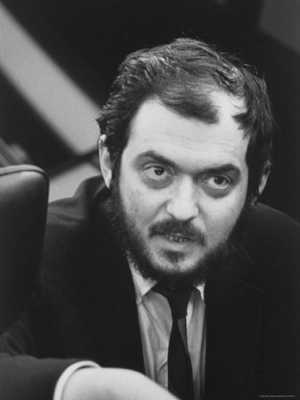
An American film director with such important works as “A Clockwork Orange,” “Dr. Strangelove,” and “2001: A Space Odyssey” under his belt, Kubrick was known as a coldblooded perfectionist, often requiring dozens of takes to get a scene the way he wanted it. During the filming of “The Shining,” his intense demands tormented stars Jack Nicholson and Shelly Duvall, to the point that Duvall’s hair began falling out. Somewhat reclusive, he was known for hoarding animals and being a chess mastermind. Interviews with those closest to him indicate he was cheap, uncomplimentary, and showed a marked lack of empathy toward collaborators. Although reports exist countering these allegations of misanthropy, it seems that some of Kubrick’s ruthless genius may be due to certain autistic traits.
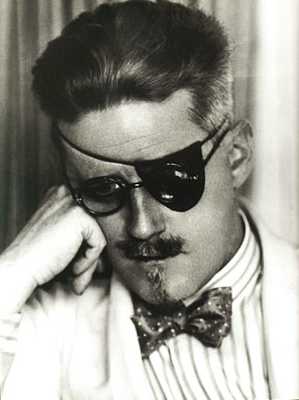
Irish novelist Joyce is remembered primarily for his book “Ulysses,” an enigmatic re-telling of “The Odyssey” and the scourge of literature students worldwide. In youth he exhibited extreme intelligence and strange phobias. Joyce’s eccentricity and self-centeredness are made quite apparent in a dissection of his writings. While unarguably brilliant, works such as “Ulysses” and “Finnegan’s Wake” are composed in a style that is intentionally difficult to approach. Some scholars claim that he wrote mainly to flummox readers, asserting a perhaps autistic distance between himself and society. In an interview for Harper’s Magazine, he stated “The demand that I make of my reader is that he should devote his whole Life to reading my works.”
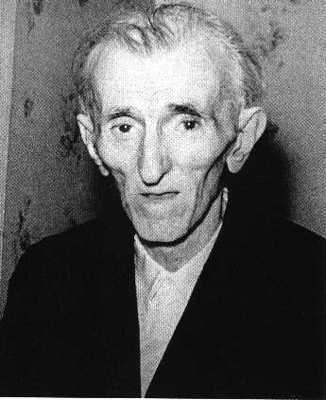
An ethnic Serb born in present day Croatia, Tesla was a foremost inventor and engineer, more brilliant by far than his contemporary Edison, who ultimately exploited him and stole many of his ideas. More eccentric by far than any other personality on this list, Tesla harbored a crippling series of phobias, maintained his celibacy, had a sensitivity to light and sound, and was intensely focused on numbers (especially the number three – he wouldn’t stay in a room whose number was not divisible by three). He was very soft spoken, but could be nasty in defense of his strange beliefs. While generally reclusive and fanatically driven by his work, he could grandstand and was good friends with Mark Twain in his middle years. While most certainly obsessive compulsive, many of his behaviors could also be seen in an autistic light. As he aged, he became even more bizarre, ultimately earning the derision of the scientific community and dying alone in a hotel room, nearly penniless.

One of the most brilliant men of this, or any, era, Einstein’s contributions to physics and humanity in general cannot be overlooked. There are a lot of conflicting accounts regarding his youth (the popular rumor that he failed math in school is an outright lie), but reports indicate he was a very technically minded, somewhat aloof child. His research, of course, was of the most abstruse, imaginative sort, hinging on details that someone with Asperger’s could easily find reason to focus upon. After the death of his wife, he become almost completely unconcerned with his physical appearance (a quirk made more manifest in an era of formality), especially his wild hair. However, Einstein seemed to have had little difficulty socializing as an adult – although he did not openly relish the trappings of his fame, he was known for various romantic trysts even late in life.
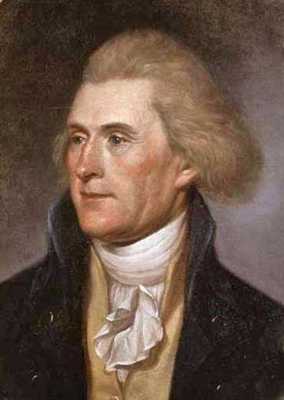
The third President of the United States, and the preeminent political scientist amongst the Founding Fathers. Despite authoring the Declaration of Independence, Jefferson’s eloquence did not extend to oratorical skills. Described sometimes as painfully shy and averse to making eye contact – fellow statesman Alexander Hamilton once called him “shifty eyed” – Jefferson displayed many of the characteristics common to Asperger’s Syndrome. Like many others, he was an inventor and compulsive mathematician, and seemed obsessed with constant additions and tweaks on his Monticello estate. He had stilted body language, exacting attention to detail, odd compulsions, and often appeared unkempt. His relationship with slave Sally Hemings might also be explained by Asperger’s; it would probably have been easier for him to be intimate with a woman with whom he did not have to engage in the exacting social conventions of the day.

Gates is the co-founder of Microsoft, and frequently tops the list of the richest people in the world. The only living entrant on this list, Gates exhibited a marked technical acumen from youth – his computer programming skills and attention to detail were remarkable, and he racked up an almost perfect score on the SATs. Despite his business prowess, he displays a number of characteristics which could be construed as Asperger’s Syndrome. He has a distinct rocking motion when he is concentrating, a clipped monotone speech pattern, and has developed a reputation for being distant, avoiding eye contact, and lashing out at subordinates when he is displeased.


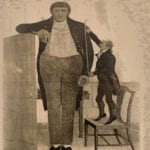
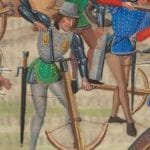

![Top 10 Most Important Nude Scenes In Movie History [Videos] Top 10 Most Important Nude Scenes In Movie History [Videos]](https://listverse.com/wp-content/uploads/2019/09/sharonstone-150x150.jpg)


